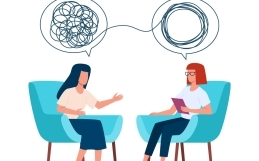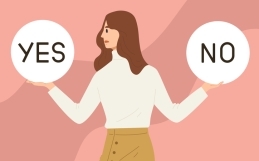You can usually change your outside circumstances. If you hate your car, hair, job, or weight, you can do something about it. Whether you believe that or not, there’s always an option to change the world outside of you, as hard as that might be. However, most people don’t think about starting by changing from within instead of automatically trying to change everything around them. We tend to believe that until the things around us are different, we can’t be emotionally sound or feel good about our lives. I call BS on that. In reality, that very notion is what prevents us from making the changes necessary for us to live happy and fulfilling lives. That’s because putting all of our efforts into looking outside of ourselves blocks us from seeing what’s within. As an alternative to blaming our world, we can start by looking inside ourselves and asking, “How am I contributing to creating the world around me?” “In what ways are my thinking, behaviors, and actions self-defeating and perpetuating the life I’m living?” “What do I get out of the life I’m living?” and “Why do I continue the same automatic behaviors over and over again, even if they don’t make me happy?”
I’ve found that life will keep handing you similar circumstances until you change from within. At that point, you have a choice: You can react to life in the same ways you always have, wishing that annoying, crappy, horrible situation didn’t happen, or you can choose to respond differently. Instead of always trying to change your outside world and complaining about the unfairness of it all, why not take the time to work on evolving from within? I always wonder how different people would be if instead of working so hard on changing their outside world, they worked on becoming more emotionally independent from within.
You might be thinking this is crazy talk or wondering what in the world I mean by emotional independence. If that’s the case, allow me to clarify. What I mean by emotional independence is the ability to manage your life and your stress levels, even under difficult circumstances. This kind of independence is accomplished by building who you are from the inside out, not the outside in.
Emotional independence is a type of inner resilience that lets you know you can meet, solve, and be with any circumstance you face. It means building your sense of self on your own, without depending on others to make you happy or tell you who you should be. Accepting ourselves and changing unhelpful perceptions and behaviors allows us to find the strength we need to create a personalized sense of inner calm. It empowers us to see ourselves as separate from others and declare independence from circumstances that might once have dictated our moods, behaviors, and ideas about ourselves.
I know, I know. That all sounds good on paper, but actually practicing it is something else altogether. The truth is, it’s more comfortable to hold on to our usual, automatic responses (even if those responses don’t make us happy) than it is to change them. And even if we do want to change from within, it’s sometimes hard to know where to begin. Allow me to help you with that part. Below are some simple steps you can start taking to begin living from within now.
- Know that you are the sum of your choices. I know that might sound a bit harsh, especially if you don’t love your life too much right now, but it doesn’t mean that you’re to blame for every shitty thing that happens to you. It actually isn’t your fault that you make certain choices in your life. We learn automatic ways to deal with situations based on the position we held in our families of origin, and we continue to respond to life in that matter as we get older. The first thing we have to do is pay more attention to ourselves and become aware of how we naturally respond to situations. Only then can we make changes in the choices we make, which will lead us to live more purposeful and intentional lives.
- Gain an understanding of your values and long-term goals. When’s the last time you had some time to yourself without your phone, the TV, or other means of distraction? We’re constantly blasted with stimuli that take us away from reflecting and being aware of our minds and ourselves. Try to take a good 10 minutes a day to self-reflect. Take yourself on as a research project. Get to know yourself better. During this time, watch your mind wander without judgment. What do you think about? What emotions do your thoughts trigger? Over time, you’ll start learning about the most important person in your life: you! Then you can begin to gain an understanding of your values and long-term goals.
- Say goodbye to “shoulds” and “ought to’s”. All of us learn a bunch of “shoulds” and “ought to’s” throughout our lives. You know, things like, “I should be happy all the time,” or “I ought to be exceptional at everything I do.” Most of the time, ideas of that nature dictate how we live our lives. We have to be willing to identify the inner voices that tell us what we should and ought to be, in order to distinguish them from our own true voice. It’s important to decide to be free from the expectations others have of you; otherwise, you risk living a potentially unfulfilling life. We’re not always aware that we’re taking other people’s expectations on as our own. But when we do it, we wind up feeling anxious, resentful, uncomfortable, unfulfilled, and empty. Recognize that those kinds of emotions can serve as signals to let you know you aren’t living from your personal truth, but rather based on the “shoulds” and “ought to’s”.
- Know yourself through your most important relationships. We develop our emotional independence from our most important relationships with others. What I mean by this is that we can’t know who we are until we get a good understanding of how we relate to other people. Our family and romantic relationships commonly trigger us the most; but if we’re paying attention, these triggers can reveal to us how reactive we are to others’ opinions of us. Being emotionally independent doesn’t mean that the people in your life have absolutely no effect on you. However, it supports you in striking a good balance between emotional closeness and distance, allowing you to regulate yourself even around people who know your triggers. Your close relationships shouldn’t feel like a burden or a crutch you need to feel good about yourself and your life.
- Take responsibility for yourself. When we blame others for our difficulties, we put 100% of the blame on them. By doing this, we make them 100% responsible for fixing the problems we face. That leaves us feeling emotionally dependent and uncomfortably vulnerable. In order to better manage your emotions, you have to take responsibility for your part in the problems you face. This puts you in the driver’s seat of your own life, instead of being driven by your emotions. It helps you become aware of the options you have to improve your situation and quiets your unsettling feelings, giving you more control of your emotional responses.
- Know how your brain works. Serotonin and dopamine are the chemicals our brains release to give us the feelings of joy and happiness. According to neuroscience research, we can condition ourselves to feel happier about our lives by changing the way we think about and perceive our experiences. Our brains us help us decide what makes us happy, and according to research, it has nothing to do with the outside world. It’s all about how we perceive the outside world. More proof that happiness really does come from within. Even if you think you don’t have control over your feelings now, by changing your thinking over time, you can gain more control over your emotions, allowing you to live a more emotionally independent life. People, circumstances, and your bank account can’t control you! You can feel every emotion you want to feel by engaging in more purposeful thoughts and actions. Happiness is your decision.
You can take a new look at yourself and your actions, opening yourself up to making changes that you might never have considered; or, you can continue to do the same things you’ve always done. Living an emotionally independent life means opening yourself up to new experiences and letting go of the idea that it’s better to live comfortably than to work on changing out of fear of the unknown. There’s another type of emotional comfort worth trying out, and that’s the self-confidence of knowing you can handle anything you face. Emotional independence is the only lasting security, the only real sense of internal comfort.
Did you enjoy reading this article?
Once a week I send out a newsletter with new articles and unique content for readers. It is my way of staying in touch with you and giving you free advice based on some important topics.
Click here to sign up for my newsletter.
Get a copy of my popular book “Its Within You.” It is a guide to help you to live within and cultivate your sense of purpose. https://amzn.to/2LP2pNL
Talk soon,
Dr. Ilene





